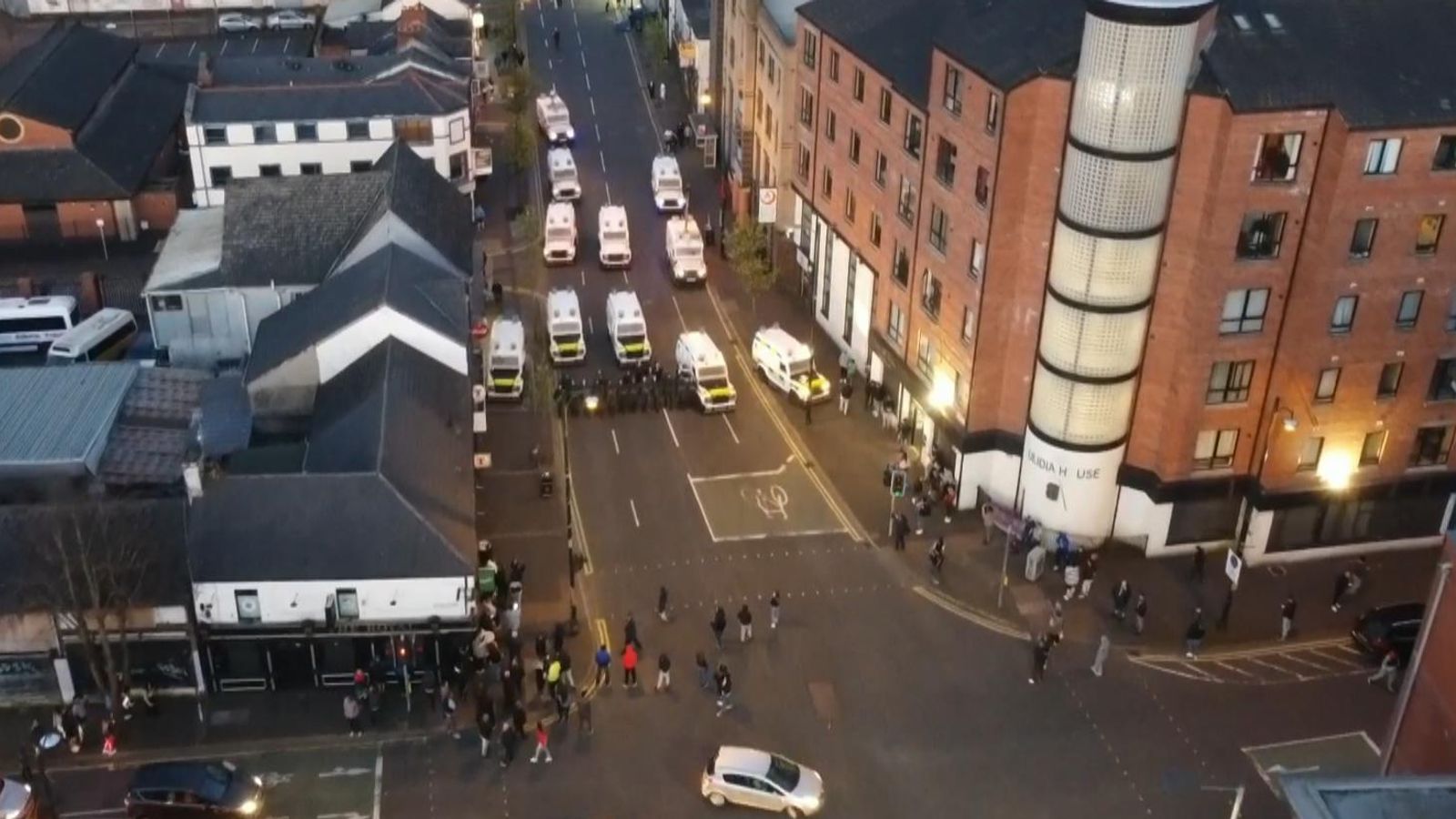A 13-year-old boy is one of eight people arrested after 15 police officers were injured during rioting in Belfast.
Officers were policing a small protest in the loyalist Sandy Row area of the city when they came under attack.
District commander, Chief Superintendent Simon Walls, said officers had suffered burns, head and leg injuries after being subjected to “a sustained attack” by rioters throwing heavy masonry, metal rods, fireworks and manhole covers.
Two boys, 13 and 14, were among seven males arrested, the others aged 17, 18, 19, 21 and 25. A female, 19, is also in custody.
Chief Superintendent Walls said: “It’s a tragedy that any child, because let’s bear in mind a 13-year-old is a young child, I think it’s a tragedy that any child in Northern Ireland is sitting in a custody suite this morning and facing criminal investigation, possibility of being charged and possibility of facing a criminal conviction.”
Tension over the UK-EU Brexit deal’s Northern Ireland Protocol, the establishment of a border in the Irish Sea, has been simmering in the loyalist community for months.
But this week’s decision by public prosecutors not to charge anyone with alleged breaches of COVID regulations at an IRA funeral sparked Unionist outrage.
The chief superintendent added: “I’m not going to enter into dialogue about political commentary.
“What I would ask is that people with influence, people in local communities would dissuade young people, or anyone else intent on causing violence or harming police officers.”
Analysis: Policing remains an enormous challenge in Northern Ireland
Twenty-three years after the Good Friday Agreement, policing remains an enormous challenge in Northern Ireland.
Last month, Sinn Fein condemned officers for their handling of a memorial service for victims of a loyalist gun attack.
Now Unionists are calling on the chief constable to resign over the handling of an IRA funeral in west Belfast.
For some in the loyalist community, where there is already tension over the Brexit Protocol, it was a tipping point.
But how many young people are going to end up with criminal records for rioting before communities find better ways to express frustrations?
Until they do, the Police Service of Northern Ireland will be attempting to police a divided society in Northern Ireland.
Two decades after the historic compromise, that says more about the politics of this place than it says about policing.






















